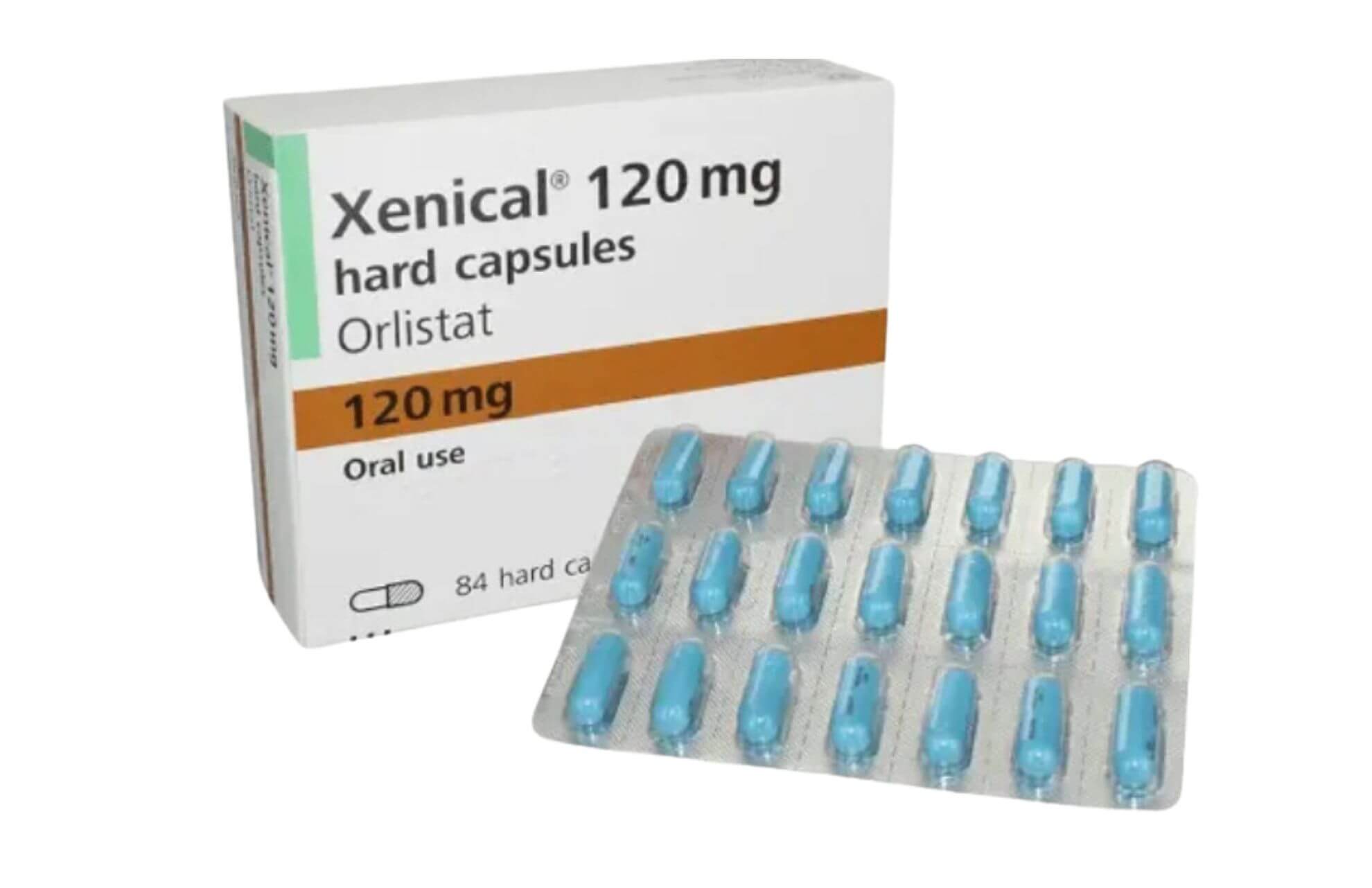Xenical (
generic name: orlistat) is a medication primarily used to manage
obesity. Orlistat is a
lipase inhibitor, reducing the absorption of dietary fats in the gastrointestinal tract. By inhibiting pancreatic and gastric lipases, orlistat prevents the breakdown of triglycerides into absorbable free fatty acids, leading to decreased caloric intake. This mechanism
aids in weight loss and assists in preventing weight regain when used alongside a reduced-calorie diet and regular physical activity. Orlistat is minimally absorbed into the bloodstream, exerting its effects locally within the gastrointestinal tract.
Orlistat is used together with a reduced-calorie diet and weight maintenance to treat obesity in people with certain risk factors (such as diabetes, high blood pressure, and high cholesterol or triglycerides).
Xenical should be taken with a well-balanced, calorie-controlled diet that is rich in fruit and vegetables
with approximately 30% of calories from fat. Distributing daily fat, carbohydrate, and protein intake evenly across three main meals can help minimize potential gastrointestinal side effects. To achieve maximum benefit, avoid foods that contain fat between meals, such as cookies, chocolate, and salty snacks.
Dosage
The standard dosage of Xenical is one 120 mg capsule taken along with each main meal that contains fat, with a maximum of three doses per day. It can be administered during the meal or up to one hour afterward. Orlistat works only in the presence of dietary fats. Therefore, if you skip a main meal or eat a fat-free meal, you do not need to take Xenical.
In case a dose is missed, it should be taken as soon as remembered unless it is more than an hour since the last fat-containing meal; in such cases, the missed dose should be skipped, and the regular dosing schedule resumed.
Storage
Xenical capsules should be stored at room temperature, between 20°-25°C (68°-77°F). They should be kept in their original container, tightly closed, and protected from moisture and light. Do not store Xenical in the bathroom or kitchen. If in any doubt, consult our blog on safe medicine management.
Common Questions About Xenical
What are the common side effects of lipase inhibitors?
The most common side effects of lipase inhibitors like orlistat are gastrointestinal, including oily or fatty stools, increased defecation, and flatulence with discharge. These effects are due to the unabsorbed fat being excreted and can be minimized by adhering to a low-fat diet.
What lifestyle changes can help manage obesity?
Effective management of obesity typically involves a combination of dietary changes along with appropriate medication. Increased physical activity, and behavioral modifications are also necesssary. Reducing caloric intake, choosing nutrient-dense foods, engaging in regular exercise, and seeking support from healthcare professionals can aid in weight loss and maintenance.
Are there any dietary restrictions while taking orlistat?
While taking Xenical, it is recommended to follow a nutritionally balanced, reduced-calorie diet with approximately 30% of calories from fat. Consuming a diet high in fat may increase the likelihood of gastrointestinal side effects.
This text is for informational purposes only. Please consult a doctor or pharmacist before using any medication.
Read the information leaflet that comes with the medication.
Most people who use Xenical do not experience any adverse side effects. Doctors prescribe this medication because they assess the benefits of such treatment outweigh any likely unwanted effects.
Some of the side effects that have been reported come from unabsorbed fat being excreted. These include oily or fatty stools, increased need to pass stools, fecal urgency, and flatulence with discharge. To minimize these effects, adherence to a restricted-fat diet is recommended. Additionally, orlistat may impair the absorption of fat-soluble vitamins (A, D, E, and K); supplementation may be necessary. The use of Xenical during pregnancy and breastfeeding is not recommended due to potential risks to the fetus or infant.
Not all side effects are listed here. If these or other unlisted symptoms persist or worsen, consult a healthcare provider or pharmacist.
Xenical is approved for the management of obesity, including weight loss and weight maintenance, when used in conjunction with a reduced-calorie diet. It also reduces the risk of weight regain after prior weight loss. Obesity is defined as having a body mass index (BMI) of 30 or higher. Common symptoms associated with obesity include fatigue and difficulty performing physical activities. By aiding in weight reduction, Xenical can help alleviate these symptoms and reduce the risk of associated health conditions such as type 2 diabetes, hypertension, and cardiovascular diseases.














